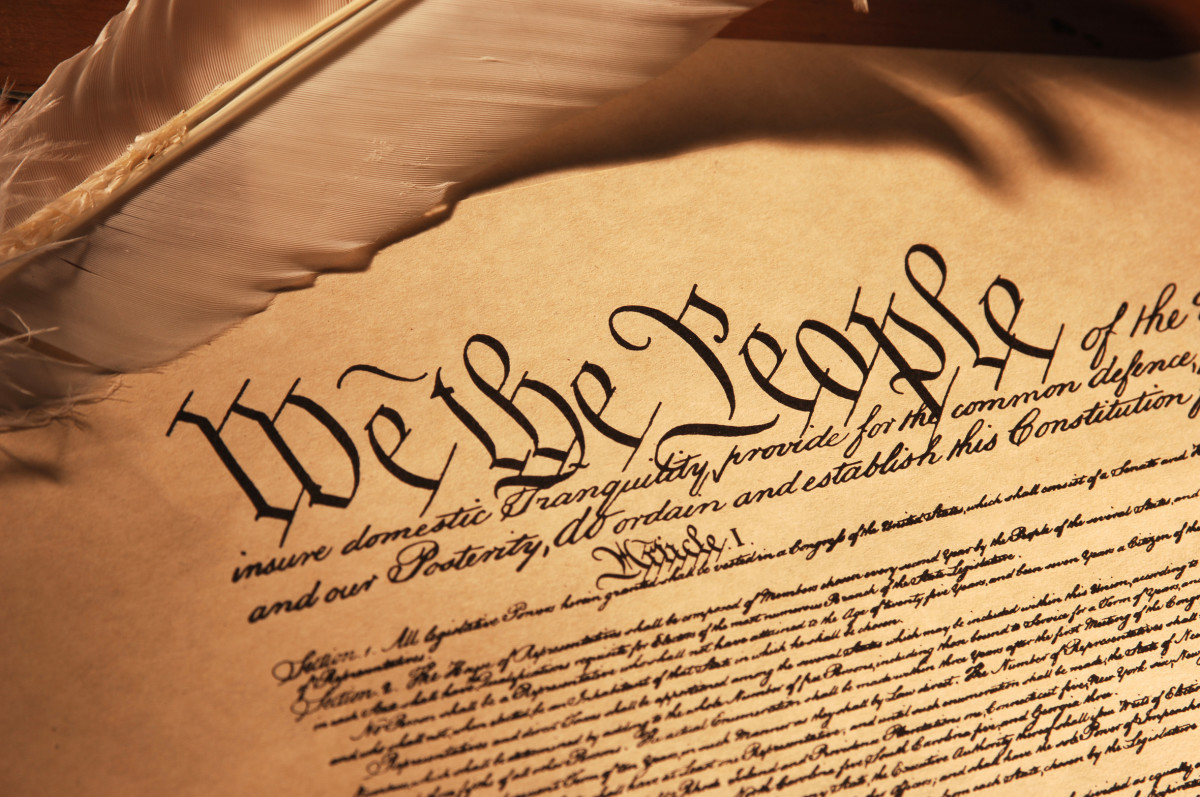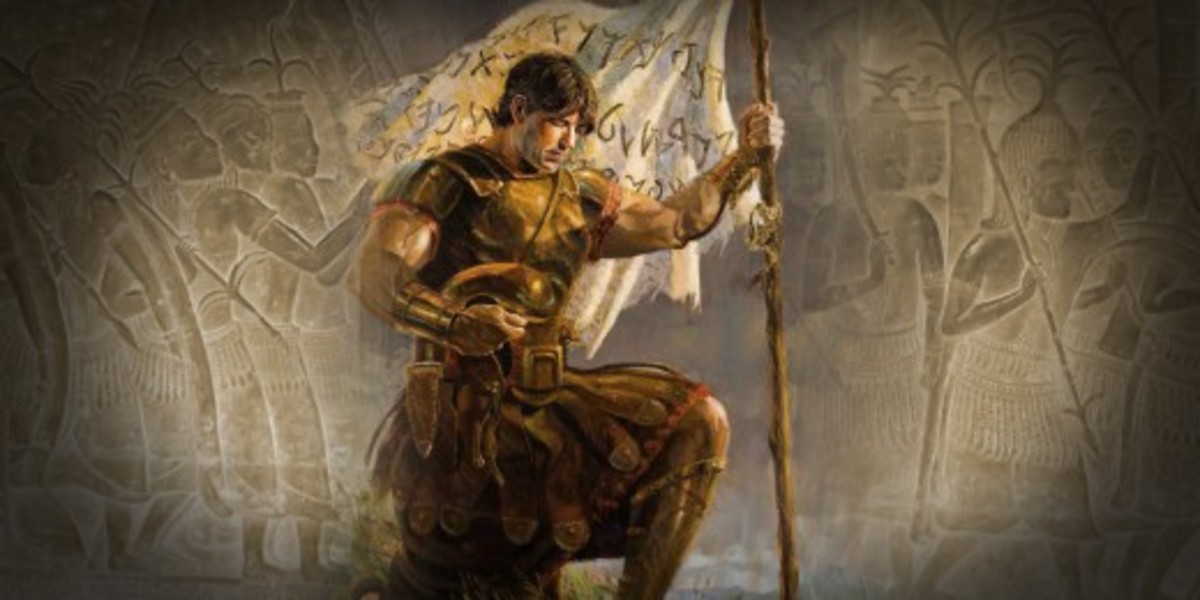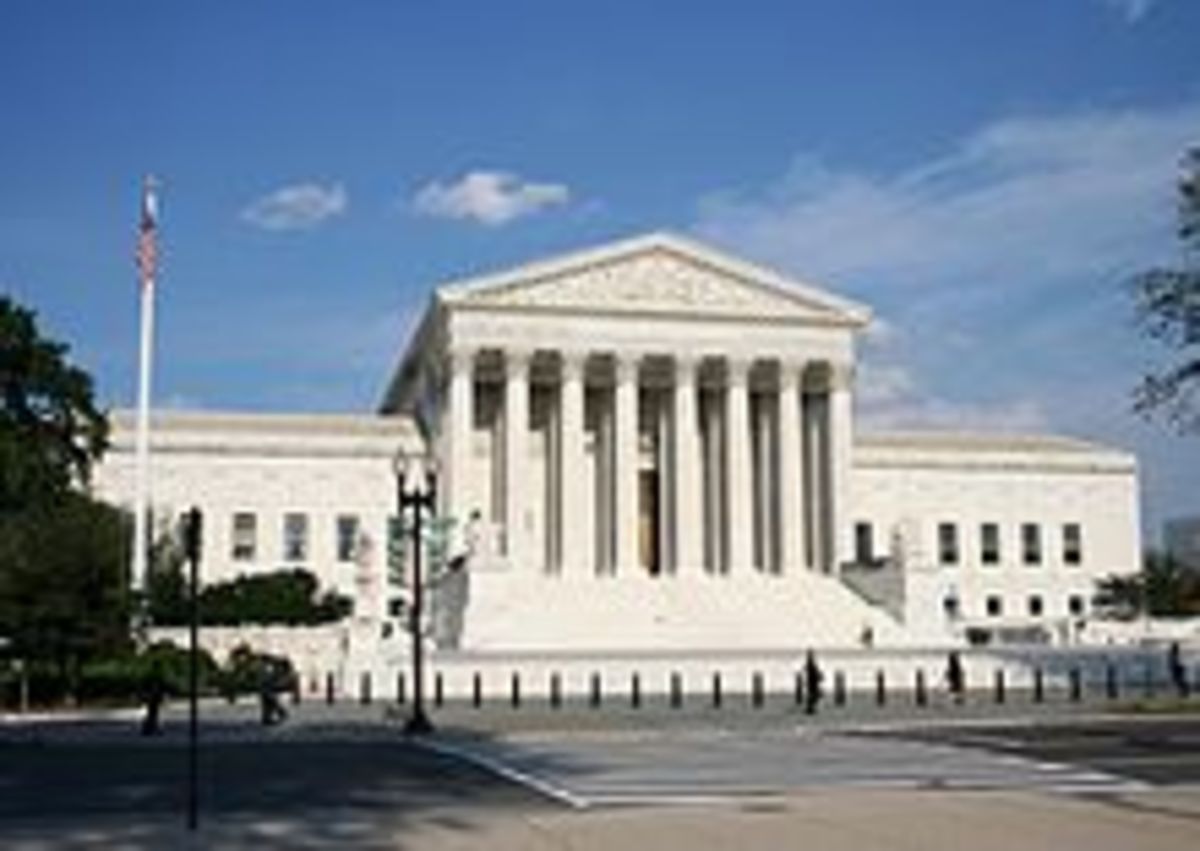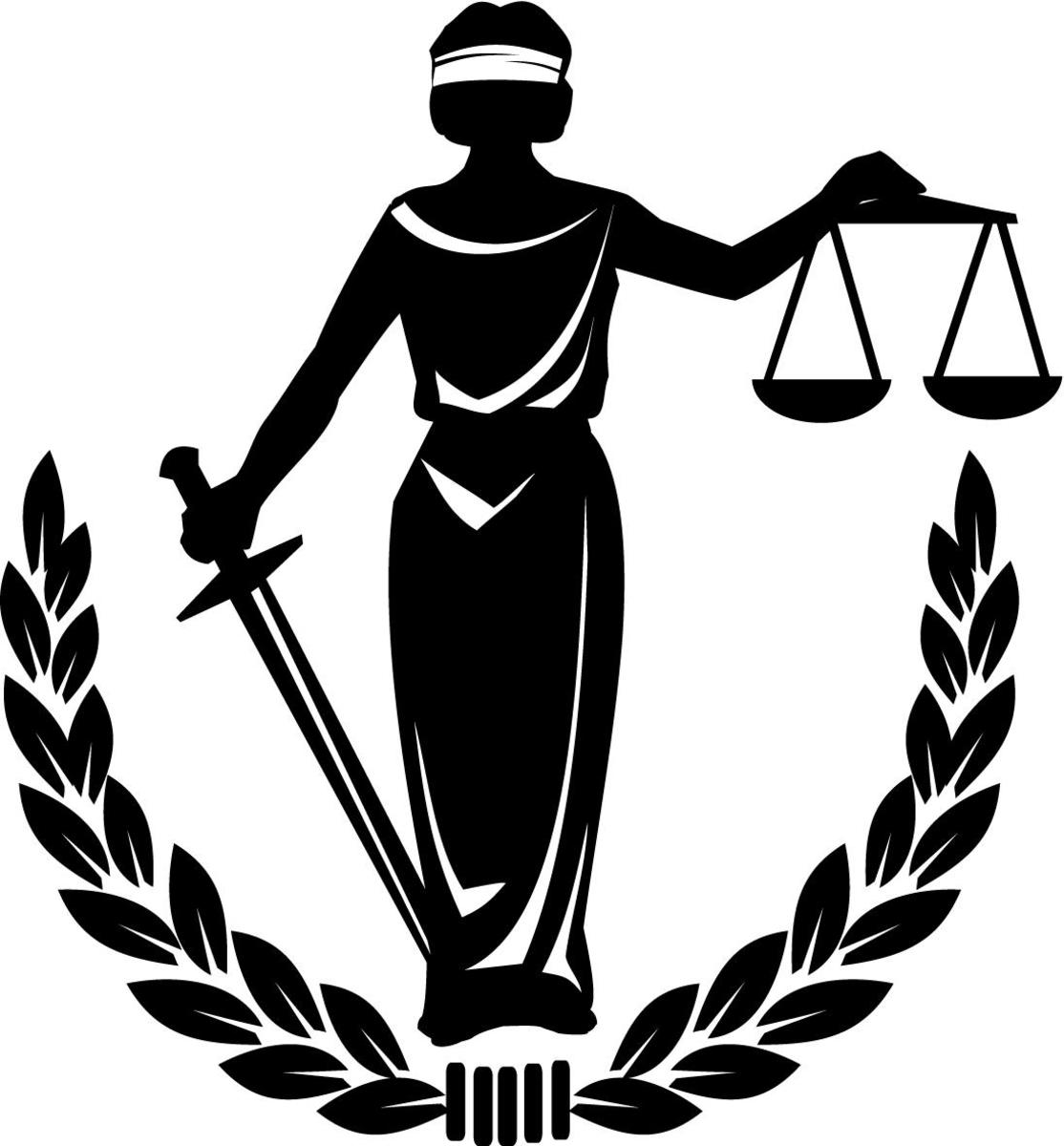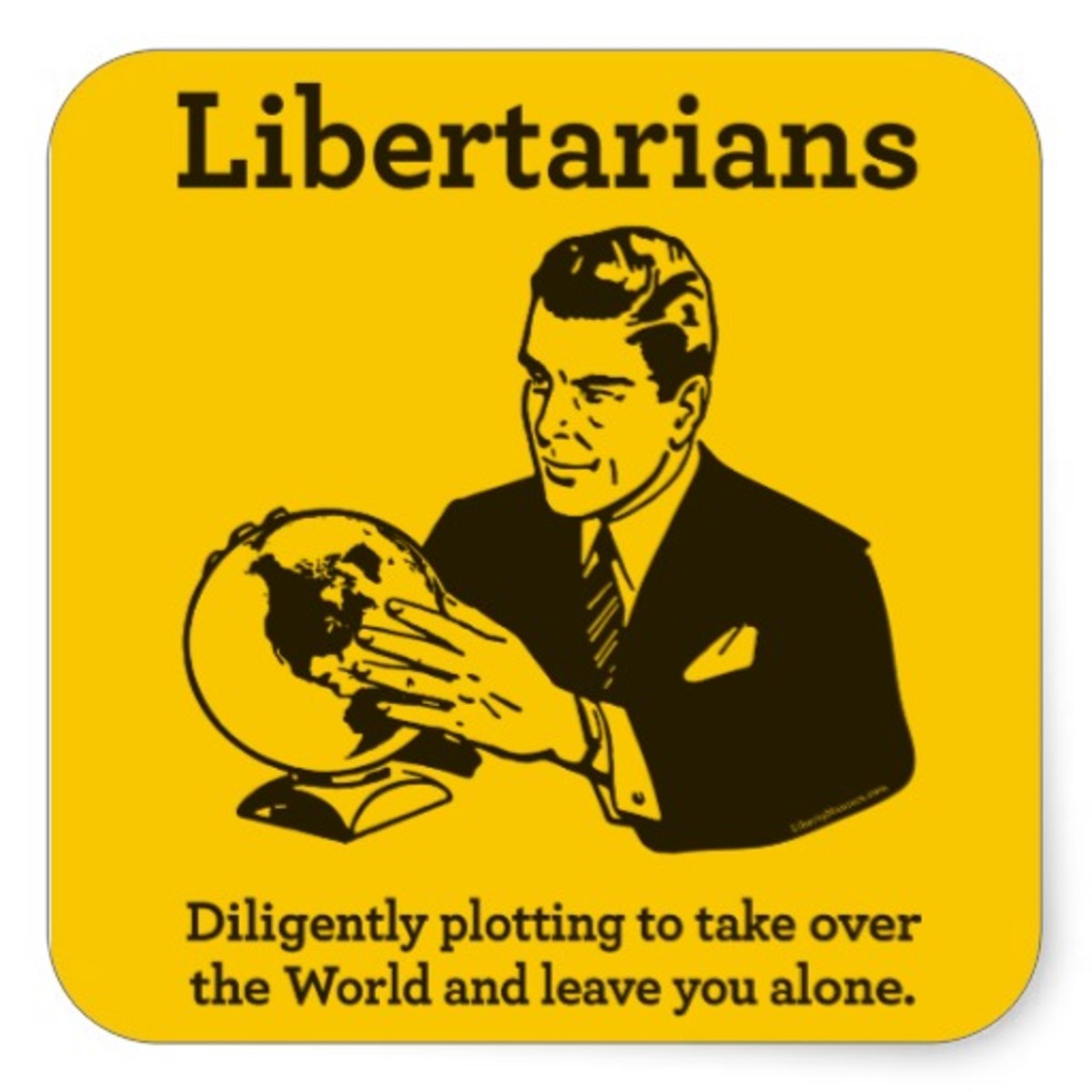Understanding Liberty
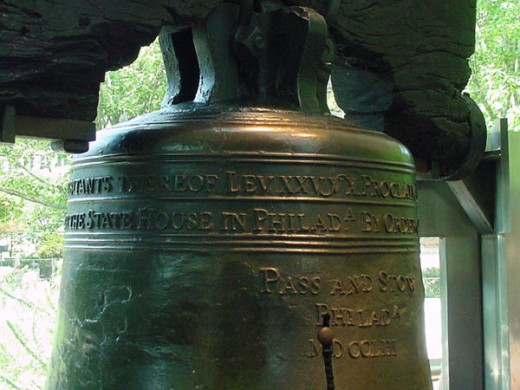
Introduction
I have for a long time been fascinated by what has been called "agency", which we might define as the power to choose, and how it relates to the philosophy and mechanics of human relationships and government. You may think this sounds like quite a dry topic. I probably would have agreed back in my teens and twenties, but I have come to discover that this issue is at the very heart of just about all debates related to philosophy and human interaction - especially in politics. Comprehending agency's role, then, is of prime importance if this be true; and I hope I can convince you that it is...
This first article looks at liberty in general terms. I will be covering such things as rights, government, and law in more detail in later articles.
Freedom brings Happiness
All people desire freedom. We can only grow and learn to the degree that we are free. We can only know true fulfilment to the degree that we are free. It is only through being free that mankind can reach his potential. In short, we can only be happy to the degree that we are free, for those things which bring us true joy can only be obtained through the voluntary use of those faculties which freedom vouchsafes to us; and from experience we know that being forced or coerced is anathema to both the human spirit and human enterprise - loss of liberty brings only misery.
History is the Story of the Rise and Fall of Liberty
And yet freedom is something we can easily take for granted - and just as easily lose. History's repeated cycles are evidence enough of this. Countless civilisations have come and gone, many of them destroyed because they surrendered their freedom little by little until it was too late. For a nation to lose its freedom there need be no military attack. It can be lost because the citizens of that nation have allowed themselves to be deceived through apathy, distractions, fear, ignorance and ebbing morals.
There are Two Forces At Work in the World
Throughout history there have been two competing philosophies of government. One holds to the idea that sovereignty lies in the people and that people have inherent and inalienable natural rights[1] that precede the formation of, or exist prior to, the establishment of government.[2] This philosophy is called Common Law.
The other philosophy teaches that sovereignty lies in an absolute ruler or body of rulers and that rights exist only inasmuch as such rulers grant them. In effect there are no rights, only privileges. This philosophy has a number of names but most popularly is called Civil Law.
Common Law and Civil Law are two opposites. They cannot be reconciled.
J. Reuben Clark, one of the foremost U.S. Constitutional lawyers and statesmen of the Twentieth Century, Under Secretary of State during President Calvin Coolidge's presidency, and author of the masterful Memorandum on the Monroe Doctrine, had this to say about these opposing philosophies of government:
"During the centuries, these two systems have had an almost deadly rivalry for the control of society, the Civil Law, and its fundamental concepts, being the instrument through which ambitious men of genius and selfishness have set up and maintained despotisms; the Common Law, with its basic principles, being the instrument through which men of equal genius, but with love of mankind burning in their souls, have established and preserved liberty and free institutions." (Stand Fast By Our Constitution, Salt Lake City: Deseret Book Company, pp. 139)
Sovereignty Lies in the People
In order to fully grasp the gulf between these two ideologies we will need to understand the meaning and importance of sovereignty.
In terms of a nation, sovereignty is the exclusive right to make and enforce its own laws, and to judge disputes of the law. Under Common Law the government can only act because the people (the creator of government) have authorised it. Hence the people are sovereign.[3] The government derives its just powers from the governed. Such a government, based on Common Law, cannot justly possess powers that do not first exist in the individual. In other words, the people cannot authorise government to do something that they in the first place have no right to do, and neither can government take to itself those powers the people have not specifically delegated to it.
Sovereignty can be thought of as existing on many levels but in reality this is only representative as it ultimately resides in (and is never taken from) the people as individuals. It is the people who are the masters, government the servant.
The three cornerstones of national sovereignty are political, military and economic independence. This is merely a reflection on a larger scale of the the individual right to make and act on his choices, defend his person and to be independent of others financially.
A Brief History of Civil and Common Law
As far as modern times are concerned, Civil Law originated chiefly from the Roman Empire.[4] For this reason it is sometimes called Roman Law. This philosophy spread over continental Europe[5] and, in the Eighteenth Century, the Civil Law ravaged France in what became known as the Reign of Terror. Today, born of its past and present geographical sway, Civil Law is also known as European Law.
Common Law has its roots in antiquity. Some believe it to have originated from the divine law of statutes and judgements given to the Israelites by Moses. Whatever its origins, it was brought across Europe and to Britain by the Anglo-Saxons. It was a law common to all those peoples and hence became known as Anglo-Saxon Common Law.[6] In Europe, Civil Law was the legacy of the later Roman Empire, but England remained free of this influence and thus the Anglo-Saxon Common Law eventually came to be called English Common Law.
English Common Law was seriously compromised during the Norman Conquest when the Normans imposed European Civil Law on Britain under the name of Feudalism. However, after long and bloody centuries, rights and freedoms were gradually won back and restored. Perhaps the primary and most notable date of this period is AD 1215 when the Magna Carta was signed - a document that is still held to be binding today as an important part of the British Constitution.[7]
The Framers of the Constitution of the United States drew heavily upon Common Law when drawing up that remarkable freedom document. William E. Gladstone (1809-98), the British Prime Minister, was so impressed with the US Constitution that he said it was "the most wonderful work ever struck off at a given time by the brain and purpose of man". American freedom drew many of its constituent parts from English Common Law.[8] Ireland, Malta, Australia, Canada and New Zealand also adopted (to some degree) the English Common Law in the founding of their own governments.
In short, these two views of governance can be said to be founded on the concept of authority: One holding that governments derive their just powers from the people, the other that governments may draw on some imagined source of power. The animation below, by the late Ken Schoolland (author of the Jonathan Gullible book series), illustrates this idea of authority very well. We'll finish up with it, but please read the end notes below too as they support and add much to the article. And please feel free to comment! ;)
End Notes
- "Rights are not gifts from one man to another, nor from one class of men to another; for who is he who could be the first giver, or by what principle, or on what authority, could he possess the right of giving?...It is impossible to discover any origin of rights otherwise than in the origin of man; it consequently follows that rights appertain to man in right of his existence only, and must therefore be equal to every man." (Thomas Paine, Dissertations on First Principles of Government; emphasis added). Hence Paine explains that the philosophy of Civil Law is unnatural, and that rights are natural (they exist by virtue of nature or God, not because others have granted them to us); he also concludes that they must therefore be equal to all.
- "[I]n spite of the cunning of artful political leaders, these three gifts from God [the natural right to individuality (life), liberty, and property] precede all human legislation, and are superior to it. Life, liberty, and property do not exist because men have made laws. On the contrary, it was the fact that life, liberty, and property existed beforehand that caused men to make laws in the first place." (Frédéric Bastiat, The Law, pp. 2; emphasis added).
- The word "sovereignty" has reference to that which is supreme or the highest. Sovereignty exists within the individual because of his free will and so his natural right and power to make his own decisions and to act upon them. It is this power in the individual that, when delegated to government, gives life and authority to the power of government to make and enforce laws. "There are," said Thomas Paine, "but two divisions into which power can be arranged. First, that of willing or decreeing the laws; secondly, that of executing or putting them in practise. The former corresponds to the intellectual faculties of the human mind which reasons and determines what shall be done; the second, to the mechanical powers of the human body that puts that determination into practise." (Thomas Paine, Dissertations on First Principles of Government)
- In AD 438 the Roman Senate rubber-stamped the Theodosian Code. This code of laws was created by a group of jurists appointed by both the Eastern Roman Emperor (Theodosius II) and the Western Roman Emperor (Valentinian III). J. Reuben Clark said "[These laws] had provisions covering such so-called modern concepts...as price fixing, black markets, excessive taxation, socialized medicine [a national health service], conscription of labor, anti-semitism, inflation, corruption in government bureaus, the relationship between Church and State - all phrases familiar to our ears. Under these laws the entire population was organized as in one vast army. All, including the highest officials, were strictly classified, and even the least had a station. In substance this meant that everyone did what he was told, and did not act without permission. There was a great body of secret police to report disobedience; there was a ‘special' secret police appointed to watch the ordinary secret police. These laws were framed to provide security. We of today have heard the same kind of security talk. But, in fact, all this bred not security, but scarcity of grain, of materials, of men. The mere making of laws, even in an absolute despotism, does not change the great laws of nature and economics - neither then nor now, for there can be no permanent stability where men are not free. In fewer than forty years from the issuance of the Theodosian Code the Empire of the West fell, notwithstanding the operation, under complete autocratic powers, of economic devices enacted to promote the welfare of the people and to preserve the empire; some of these devices were the same ones that we have been told will rebuild our economic structure and preserve our free institutions. These devices failed with Rome; they will ultimately fail with us." (Stand Fast By Our Constitution, Salt Lake City: Deseret Book Company, pp. 140-141).
- Not many decades after the Fall of the Western Roman Empire the Byzantine (Eastern Roman Empire) under Emperor Justinian established a new set of laws called the Justinian Code. This set of laws became law throughout all the Eastern Empire in AD 529. When the Empire fell in AD 1453 the philosophy spread west across all Europe as the Byzantines fled the Moslems. Thus the Justinian Code became the system of continental Europe. It is said that the laws of the Justinian Code, a Corpus Juris system, were so many that they filled 2000 books (around 3 million verses). Whereas the absolute power of the ruler was implicit in the Theodosian Code, it was boldly stated in the Justinian Code.
- "Here are the principal points of People's Law [Common Law] as practiced by the Anglo-Saxons (see Colin Rhys Lovell, English Constitutional and Legal History [New York: Oxford University Press, 1962], pp. 3-50): 1. They considered themselves a commonwealth of freemen. 2. All decisions and the selection of leaders had to be with the consent of the people...3. The laws by which they were governed were considered natural laws given by divine dispensation...4. Power was dispersed among the people and never allowed to concentrate in any one person or group. Even in time of war, the authority granted to the leaders was temporary and the power of the people to remove them was direct and simple. 5. Primary responsibility for resolving problems rested first with the individual, then the family, then the tribe or community, then the region, and finally, the nation. 6. They were organized into small, manageable groups where every adult had a voice and vote. They divided the people into units of ten families who elected a leader; then fifty families who elected a leader; then a hundred families who elected a leader; and then a thousand families who elected a leader. 7. They believed the rights of the individual were considered unalienable and could not be violated without risking the wrath of divine justice as well as civil retribution by the people's judges. 8. The system of justice was structured on the basis of severe punishment unless there was complete reparation to the person who had been wronged...treason... [was] considered [a] capital offense... 9. They always attempted to solve problems on the level where the problem originated. If this was impossible they went no higher than was absolutely necessary to get a remedy. Usually only the most complex problems involving the welfare of the whole people, or a large segment of the whole people, ever went to the leaders for solution." (The 5,000-Year Leap, Dr. W. Cleon Skousen [USA: National Center for Constitutional Studies, 1981], pp. 12-14).
- "...men in our kingdom shall have and hold all the aforesaid liberties, rights and concessions well and peacefully, freely and quietly, fully and completely, for themselves and their heirs from us and our heirs, in all matters and in all places for ever." (Magna Carta, AD 1215). Those rights include the right to due process of law, the right to trial by jury, and the right to be presumed innocent until proven guilty.
- "Jefferson's great ambition at that time was to promote a renaissance of Anglo-Saxon primitive institutions on the new continent. Thus presented, the American Revolution was nothing but the reclamation of the Anglo-Saxon birthright..." (Gilbert Chinard, Thomas Jefferson: The Apostle of Americanism, 2nd ed. Rev. [Ann Arbor, Mich.: The University of Michigan Press, 1975], pp. 86). It is interesting to note that the members of the committee set up to design the Seal of the United States (Thomas Jefferson, John Adams, and Benjamin Franklin) originally intended one side of the seal to show the Children of Israel in the wilderness and the other side to show Hengist and Horsa (according to tradition the first Anglo-Saxons in England). These ideas proved too detailed for a small seal and a simpler design was agreed upon. The Founders were well acquainted with Common Law and that both the Israelites and Anglo-Saxons were governed by it.
This short work, written in the mid 1800s by Frédéric Bastiat, stands as a chief cornerstone among political treatises. Easy to read, it gets straight to the point of explaining what law, government, rights and liberty really are. It's the classic blueprint for a just society. If you never read anything political in your life, you must read this. I recommend it above all other books I've read (and re-read!) on the subject. Just take a look at some of the customer reviews when you click on the link - and you'll see what I mean.
What is Law, Part II of this series, can be found here: http://hubpages.com/hub/What-Is-Law



